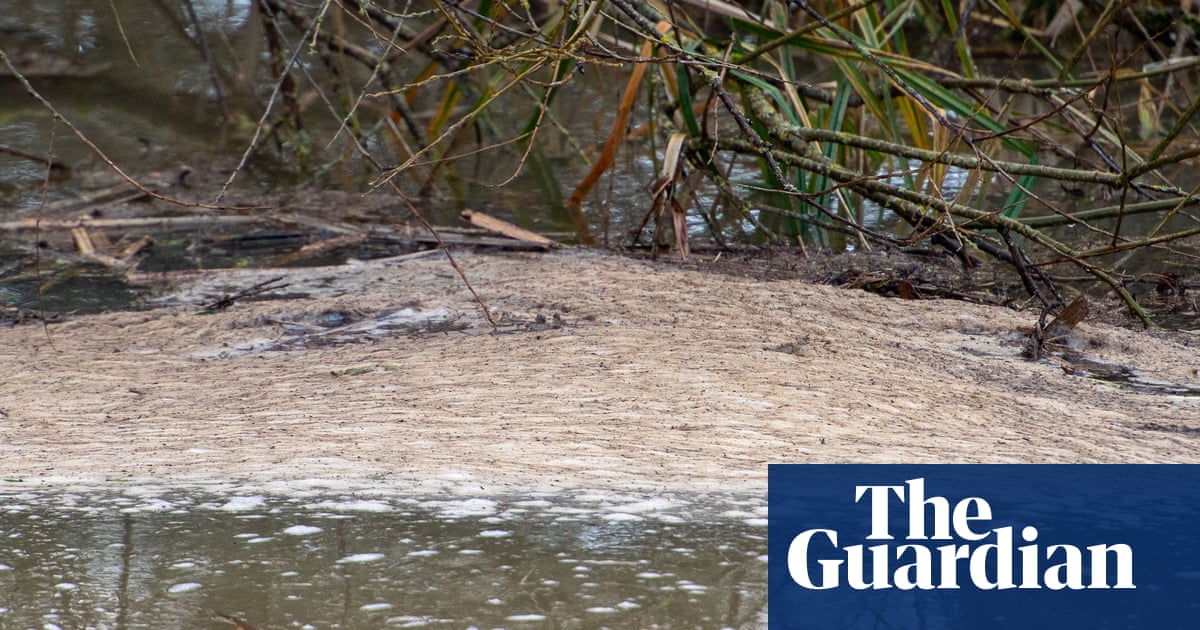
The environment minister, Rebecca Pow, has promised to bring in legislation to reduce discharge of raw sewage into rivers. Pow said that she would be placing a legal duty on government to come up with a plan to cut dumping by water companies by September 2022.
Pressure has been growing on water companies and ministers as evidence grows of the scale of the issue and amid increasing evidence of the poor state of rivers.
The Guardian revealed that in 2019, water companies discharged raw sewage from storm overflows for 1.5m hours in 204,000 incidents. These releases are permitted after extreme weather events, but the data revealed the frequent nature of the spills. None of England’s rivers meet quality tests for pollution, and just 14% are deemed to be of a good ecological standard.
Pow said the legal duty would mean that government would have to report to parliament on its progress on reducing sewage discharges. She said that she would also place a legal duty on water companies to publish data every year on their storm overflows.
The Environment Agency issues permits to allow water companies to release untreated human waste – which includes excrement, condoms and toilet paper – from storm overflows after extreme weather events, such as torrential rain, to stop water backing up and flooding homes. More than 60 discharges a year from a storm overflow should trigger an investigation by the agency.
Pow said: “Putting new commitments to improve our rivers into law is an important step forward to cut down the water sector’s reliance on storm overflows. This step is one of many – but an important one nonetheless – to provide greater protection for our water environment and the wildlife that relies on it.”
The government has been in discussion with Philip Dunne, chair of the environmental audit committee, who had been pursuing a private members’ bill to outlaw the discharge of raw sewage into rivers. The bill has now been withdrawn.
Dunne said: “I am delighted that the environment minister has honoured her pledge to seek a legislative route to give effect to the main objectives: from the government updating parliament on the progress it is making in reducing sewage discharges, to placing a duty on water companies to publish storm overflow data.”
Campaigners welcomed the focus on sewage pollution in rivers but questioned the delays in taking action to tackle the problem.
Hugo Tagholm, of Surfers Against Sewage, said: “For the first time since the 1990s, sewage pollution is back at the top of public and political consciousness … They must now manage and measure progress – and get as close to zero sewage emissions as possible.
“The evidence is already clear – water companies treat UK rivers like open sewers whilst making huge profits. Their actions, coupled with the impacts of agriculture, are destroying the blue arteries of our country. This simply isn’t good enough in this decade of ecosystem restoration.”
River campaigner Johnny Palmer, who is attempting to get a stretch of the River Avon outside Bath designated as bathing water to stop sewage discharges, said: “It’s great this is on the agenda. But agendas alone don’t create action.
“The problem is clear – shit is being pumped into our rivers by privately held monopolies. The solution is simple – water companies need to stop paying out such vast dividends to their offshore investors and put that money into infrastructure improvements. These can range from simple things like CSO ultraviolet treatment and attenuator tanks, through to larger and longer-term solutions like separate rainwater and sewage connections.”
The government refused to say whether the legislation would be included in the environment bill currently going through parliament – which would potentially provide the quickest route.
A spokesperson for the Department for Environment, Food and Rural Affairs said: “We are identifying a suitable legislative vehicle to put these important measures on to the statute book as soon as possible.”
Mark Lloyd, chief executive of the Rivers Trust, said: “We welcome this further announcement from the government, which includes legal duties on the government and water companies. We look forward to understanding specific details on how this legislation will be introduced.”












